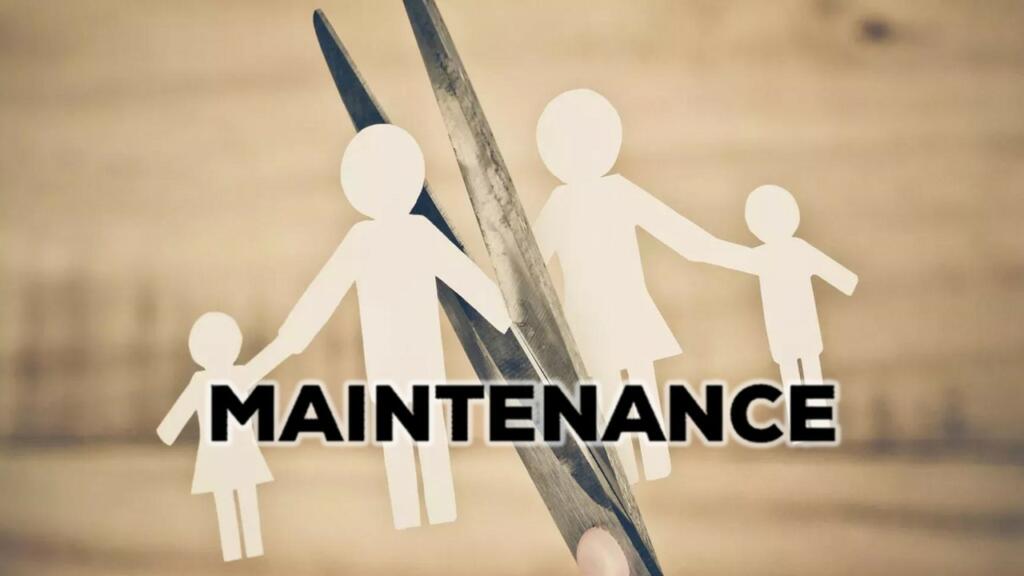Here is one powerful tool to smash patriarchy: Stop men from providing for women, because this is what they use to justify their power. We wish Indian courts would understand this basic truth. Else, the mayhem caused by the irrational maintenance petition would have subsided.
Find a job and pay your wife
Recently, the Karnataka High Court asked an unemployed man to pay for maintenance. The man is facing multiple charges under Sections 504, 323, and 498A read with Section 34 of the IPC and Sections 3 and 4 of the Dowry Prohibition Act, 1961. The wife, who doesn’t live with him, also filed a maintenance petition under Section 125 of the CrPC.
In his response, the husband told the court that he is suffering from several ailments and is unable to earn more than Rs 15,000 per month. Therefore, paying Rs 10,000 in maintenance is not possible for him. Refusing his request, the single judge bench of Justice M Nagaprasanna said, “the petitioner who is an able-bodied man has to take care of the wife and the child, if he has no avocation, by finding an avocation.”
Evolution of maintenance
Maintenance is based on the old-order convention of marriage. The fundamental idea behind Section 125 was to institutionalise marriage as an equal partnership. Traditionally, the husband earned while the wife took care of the family at home and had her own sphere of responsibility and influence.
Slowly, cases of husbands ditching their wives and recusing themselves of all responsibility started to emerge. Section 125 promises to rectify that problem. Somehow, it has not been able to keep up with the time. Women have also evolved as independent authorities in marriage, but courts do not even identify that.
Also Read: Legal Tools for Policyholders to Strike Back against Insurance Scamster
No Gender Equality in Maintenance Petition
In a case, the Madras High Court ordered a man to pay maintenance even if the wife has her own source of income. A part of the maintenance given by the husband goes to the children of separated parents. In the majority of cases, child is ordered by the court to stay with mother. That would lead to the conclusion that if the father is playing with the child, he should at least meet the kid.
The Madras High Court denies it. It literally reduced the father’s role to a money-churning machine. It is a classic case of following old-order rules books.
When the genders are reversed, the judiciary does not apply the same rules. In one case, the Punjab and Haryana High Court famously—or rather, infamously—held that adultery by a woman did not disentitle her from maintenance. It was against the spirit of Section 125(4) of the CrPC, which prohibits maintenance for adulterous women. The court, in typical legal cleverness, refused to treat a solitary act of adultery with the living in adultery.
READ ORDER | Solitary Act Of Adultery Or Isolated Lapse Of Wife Will Not Disentitle Her To Claim Maintenance: Punjab & Haryana High Court
Justice Vivek Puri: "Must indicate that wife was living in adultery shortly before or after petition of maintenance"https://t.co/MolNpJbGgs
— Voice For Men India (@voiceformenind) October 12, 2022
Patriarchy continues in Indian courts
According to the courts, the wife is responsible for the husband, but the reverse is not true. which is why in many cases, even if she earns more than the husband or the husband has spent barely one month with his wife, the man has to pay maintenance.
One would ask that there must be something in the law for divorced men. Well, there is. Section 24 of the Hindu Marriage Act is gender neutral, and even husbands can ask for maintenance. However, the patriarchal nature of courts prevents husbands from using them. Even in those cases, it is women who who chuck up a big piece of maintenance pie
In a case, the Allahabad High Court asked a man to pay maintenance under this act, even if the wife is working. In Indore, the maintenance under the same section was awarded to an educated female doctor. Courts do not talk about the impact of such freebies on society.
But when the gender was reversed, the Karnataka High Court refused to give maintenance to the husband. Justice M. Nagaprasanna, the judge who told a person to pay for his wife by finding an avocation, could not treat both genders on an equal pedestal. According to him, granting maintenance to a man under Section 24 would promote idleness.
It is time to change the maintenance laws. While it is true that a wife devotes her prime years to her husband, the husband should compensate her for this. But it hampers the future plans of the husband and impairs his financial ability to start a family. Maintenance should not stop, but it should not be subject to misuse. A better solution would be for the government to create a fund for the amicable separation of couples.
Support TFI:
Support us to strengthen the ‘Right’ ideology of cultural nationalism by purchasing the best quality garments from TFI-STORE.COM
Also Watch:
https://www.youtube.com/watch?v=IHU-ydIx-y4
